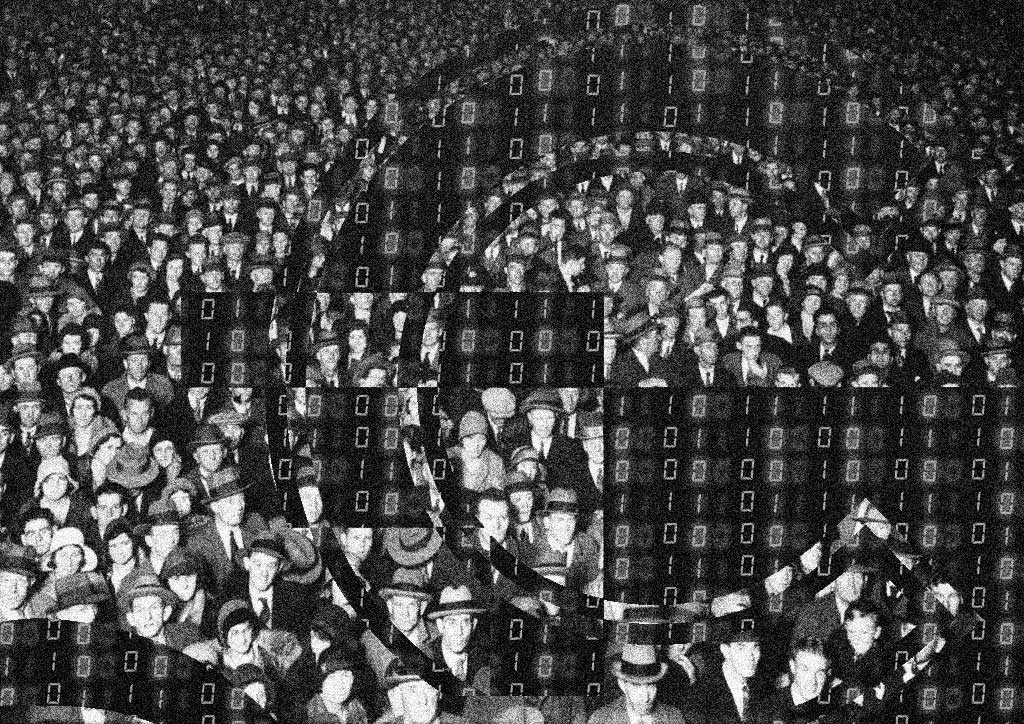
“I have 422 friends, yet I am lonely.” This was the opening line in Gary Turk’s ‘Look Up’ spoken-word short film I mentioned in my previous essay. The idea between the Internet and being lonely has been often discussed as a bridged-notion with the Internet as the couch potato of our social lives’ comfort zone, which we can easily relate to.
There is a commonly found paradox in social media networks in praising for larger quantity in friends yet only for the matter of numbers rather than having real friends. In a sense, social media’s convenience in gathering everyone in one place at a time compresses the ideal real-time quality of spending time with people.
When I wanted to learn about this bridged-notion, Google kept pointing me to a vimeo video by Shimi Cohen, entitled ‘The Innovation of Loneliness’. The info- graphic motion video was loaded-pack with information elaborating what forms human’s loneliness from being active in social media networks. From this video, I would like to emphasise the phrases of ‘sacrificing conversations for mere connection’ and leading to ‘having fake experiences so we have something to share’.
The Innovation of Loneliness from Shimi Cohen on Vimeo.
The video concludes with a quote by cultural analyst Sherry Turkle from her TED Talk in 2012, where she states, “… if we’re not able to be alone, we’re going to be more lonely.”
Being alone, and lonely are not exactly the same. Having to be alone and finding its ease is important as a human being. Turkle encourages this idea as she assures, ‘Solitude is where you find yourself so that you can reach out to other people and form real attachments.’ Although we are created to be social living beings, we need that break of solitude whether it is the privacy for work-motivation, spending time with the environment, or even simply the occasional me-time. Me-times are relevant breaks from your social self as they give you a moment of reflection to understand yourself better, a realisation for your need to reach and connect with others, and it is certainly not humiliating to do things alone.
On the other hand, being lonely associates emotionally and sensitively with being sad. Within the range of ways to interact online, being lonely has its willingness to let yourself isolate from reaching for attachment – you have driven yourself to be lonely rather than being alone.
Through its development, social media has been criticised as the reason to making us feel lonelier, yet simultaneously assured in making us feel less lonely. Feeling more lonely through social media is usually generated by viewing the online representation stream of updates, a passive activity of having to socialise, or simply seeking for help from the hundreds of friends you have yet no one lends a hand but can only lend a ‘like’ thumb. Nevertheless, in its own foundation, you are not alone when you’re online in a social media platform as friends, relatives, acquaintances, interesting-strangers-you-follow-online are there sharing activities, photographs, complaints, passion, motivation, and all sorts of other updates.
Online communication is an option, an alternative – another way to connect to others. Still, with its convenience, we seem to take this as the priority in having to quickly communicate, decreasing the quality of face-to-face conversations and finding intimacy in simple exchanges. In an article written for The Guardian by Tom Meltzer entitled ‘Social Networking: Failure to Connect’, he highlighted, ‘the more removed the medium of communication, the easier it is for us to set aside our compassion. Reduce people to a single photo and a line of text, and suddenly they’re far easier to ignore, or judge, or forget.’ With this viewpoint, it becomes too simple to connect with friends and relatives online (in real-time), that the definition of connection is fading, gradually leaving individuals to a position where they feel lonely because of the interaction that is missing.
I have seen the impact of individuals’ experiences with their online lives. I have heard friends finding themselves to be lonelier despite of their active social media personas, while concurrently, I have seen relationships grow because of the tight interaction that occurs through online communication. In my point of view, it is a learning experience having to be part of a generation that is perpetually connected to online communication where the accessibility of advanced interaction, almost eliminating the concept of distance and time, is taken for granted. With the easiness of communicating today, shouldn’t there be more time spared to communicate intimately rather than having to scroll their profile or activity feed and thinking that’s ‘good enough’?
At the end of the day, how much you communicate to those who matter to you is what you have whether it is offline or online. In its basic terms, it is the definition of communication that is existent. Intimacy is present already, it is only our willingness to give time for it or simply embody it into a status update.











